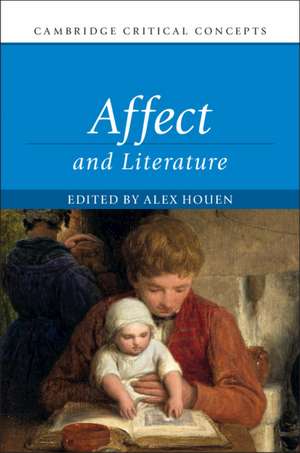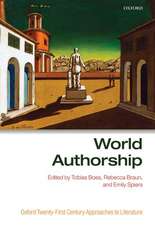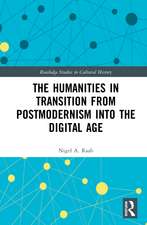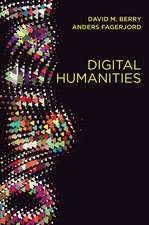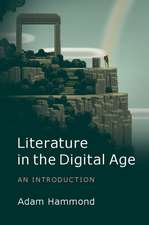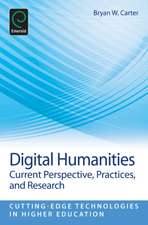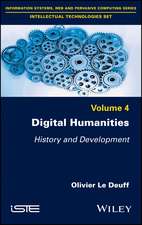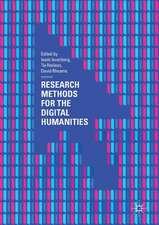Affect and Literature: Cambridge Critical Concepts
Editat de Alex Houenen Limba Engleză Hardback – 5 feb 2020
Din seria Cambridge Critical Concepts
- 23%
 Preț: 688.53 lei
Preț: 688.53 lei - 23%
 Preț: 744.15 lei
Preț: 744.15 lei - 23%
 Preț: 783.42 lei
Preț: 783.42 lei - 19%
 Preț: 689.39 lei
Preț: 689.39 lei - 19%
 Preț: 684.72 lei
Preț: 684.72 lei - 14%
 Preț: 631.00 lei
Preț: 631.00 lei - 23%
 Preț: 690.46 lei
Preț: 690.46 lei - 23%
 Preț: 720.50 lei
Preț: 720.50 lei - 23%
 Preț: 722.25 lei
Preț: 722.25 lei - 23%
 Preț: 652.23 lei
Preț: 652.23 lei - 19%
 Preț: 698.82 lei
Preț: 698.82 lei - 23%
 Preț: 785.84 lei
Preț: 785.84 lei - 23%
 Preț: 635.15 lei
Preț: 635.15 lei - 23%
 Preț: 712.34 lei
Preț: 712.34 lei - 19%
 Preț: 683.24 lei
Preț: 683.24 lei - 5%
 Preț: 834.81 lei
Preț: 834.81 lei - 19%
 Preț: 713.52 lei
Preț: 713.52 lei - 19%
 Preț: 626.46 lei
Preț: 626.46 lei - 20%
 Preț: 642.40 lei
Preț: 642.40 lei
Preț: 790.28 lei
Preț vechi: 1026.34 lei
-23% Nou
151.22€ • 158.31$ • 125.12£
Carte tipărită la comandă
Livrare economică 07-21 aprilie
Specificații
ISBN-10: 1108424511
Pagini: 470
Dimensiuni: 160 x 235 x 30 mm
Greutate: 0.77 kg
Editura: Cambridge University Press
Colecția Cambridge University Press
Seria Cambridge Critical Concepts
Locul publicării:Cambridge, United Kingdom
Cuprins
Recenzii
Descriere
This book considers how 'affect', the experience of feeling or emotion, has developed as a critical concept within literary studies in different periods and through a range of approaches. Stretching from the classical to the contemporary, the first section of the book, 'Origins', considers the importance of particular areas of philosophy, theory, and criticism that have been important for conceptualizing affect and its relation to literature. Includes ancient Greek and Roman philosophy, eighteenth-century aesthetics, Marxist theory, psychoanalysis, queer theory, and postcolonial theory.
The chapters of the second section, 'Developments', correspond to those of the previous section and build on their insights through readings of particular texts. The final 'Applications' section is focused on contemporary and future lines of enquiry, and revolves around a particular set of concerns: media and communications, capitalism, and an environment of affective relations that extend to ecology, social crisis, and war.
